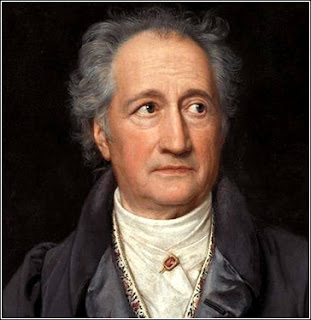Rabindranath and his party started for Berlin from Stock Holm by train on 28th May in the evening. Huge number of people arrived at the station to bid him farewell. They reached Berlin on 29th May.Arabinda Mohan Basu was present at the station. The famous industrialist Hugo Stinnes
( Hugo Stinnes (12 February 1870 – 10 April 1924) was a German industrialist and
politician ) came from south German to Berlin just to meet Rabindranath. Rabindranath and his party got in the Esplanade Hotel as his guest.
Rathindranath wrote in his diary that his father passed the whole day (30th May) in his room as he was feeling unwell.
Helmuth von Glasenapp, expert in Sanskrit and Indian affairs interviewed Rabindranath in his room on behalf of Deutsche Allgemeine Zeitung. Rabindranath said ;
" I do not consider Germany as simply the country of Goethe and Kant but a country which has shown much interest in Indian religion and language from ancient times. It is only the Germany who did not want to capture India for its worldly resources but tried to acquire the knowledge it had once arrived. " Rabindranath hoped that India and German by their mutual exchanges of philosophical ideas will be able to bridge the culture between East and West.
(Deutsche Allgemeine Zeitung (often abbreviated to DAZ) was a German newspaper that appeared between 1861 and 1945.
Until 1918 the title of the paper was Norddeutsche Allgemeine Zeitung. Although Wilhelm Liebknecht, one of the founders of SPD and close associate of Karl Marx and Friedrich Engels, was member of the founding editorial board in 1861, the paper became soon a conservative flagship of the German press ("Bismarcks Hauspostille"). At the end of the First World War, the name was changed to "Deutsche Allgemeine Zeitung", under the intention to form a conservative yet democratic equivalent to the London "Times" in Germany and give the Reich a more democratic image. Various liberal and conservative writers worked for DAZ at that time, Otto Flake was head of the Cultural Section ( called "Feuilleton" in German newspapers ), people like the historian Egmont Zechlin and the German-Turkish journalist Dr. Friedrich Schrader worked for the paper)
( Hugo Stinnes (12 February 1870 – 10 April 1924) was a German industrialist and
politician ) came from south German to Berlin just to meet Rabindranath. Rabindranath and his party got in the Esplanade Hotel as his guest.
Rathindranath wrote in his diary that his father passed the whole day (30th May) in his room as he was feeling unwell.
Helmuth von Glasenapp, expert in Sanskrit and Indian affairs interviewed Rabindranath in his room on behalf of Deutsche Allgemeine Zeitung. Rabindranath said ;
" I do not consider Germany as simply the country of Goethe and Kant but a country which has shown much interest in Indian religion and language from ancient times. It is only the Germany who did not want to capture India for its worldly resources but tried to acquire the knowledge it had once arrived. " Rabindranath hoped that India and German by their mutual exchanges of philosophical ideas will be able to bridge the culture between East and West.
(Deutsche Allgemeine Zeitung (often abbreviated to DAZ) was a German newspaper that appeared between 1861 and 1945.
Until 1918 the title of the paper was Norddeutsche Allgemeine Zeitung. Although Wilhelm Liebknecht, one of the founders of SPD and close associate of Karl Marx and Friedrich Engels, was member of the founding editorial board in 1861, the paper became soon a conservative flagship of the German press ("Bismarcks Hauspostille"). At the end of the First World War, the name was changed to "Deutsche Allgemeine Zeitung", under the intention to form a conservative yet democratic equivalent to the London "Times" in Germany and give the Reich a more democratic image. Various liberal and conservative writers worked for DAZ at that time, Otto Flake was head of the Cultural Section ( called "Feuilleton" in German newspapers ), people like the historian Egmont Zechlin and the German-Turkish journalist Dr. Friedrich Schrader worked for the paper)




